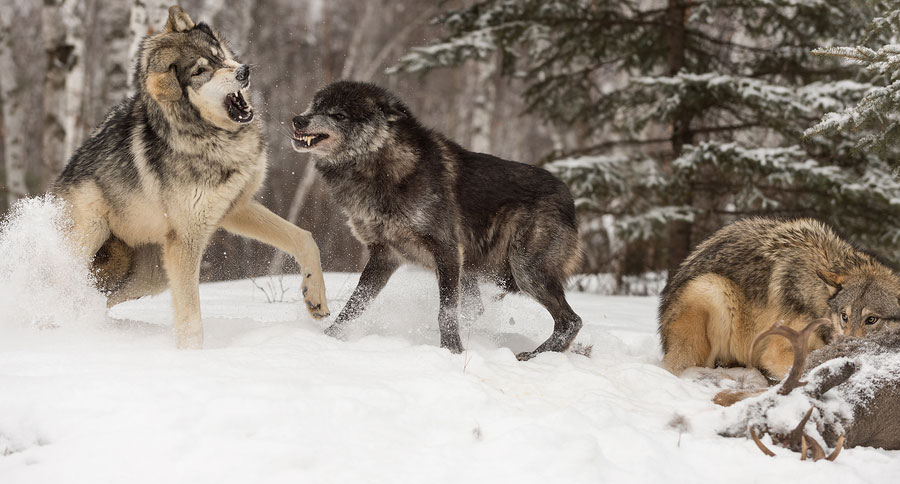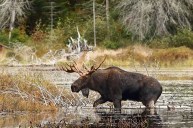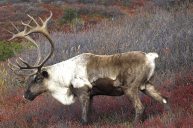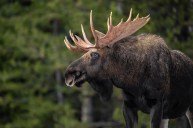The controversial decision is finally paying off.
In 2015, British Columbia had to fight through some controversy when it finalized a five-year plan to cull wolves. Now, with one year remaining, caribou herds are seemingly begin to stabilize in the northeast region of the province.
Since the cull began, hired contractors have shot 480 wolves in the Peace region in an effort to aid four endangered mountain caribou herds, according to the British Columbia Ministry of Forests, Lands and Natural Resources.
The decision was driven by those who believe limiting the number of predators will help the endangered prey flourish. However, opponents believe the two species have little effect on one another, and rather human interference and caribou habitat loss are the true culprits.
However, while the numbers aren't drastic four years into the plan, they also don't lie. The wolf cull is helping Canadian caribou populations.
The largest herd, which is just south of Chetwynd, only had about 100 animals before the cull, but has increased by about 9 percent year over year.
Similarly, a herd west of Hudson's Hope has grown by 15 percent annually, and the MacKenzie herd has grown anywhere from 7 to 14 percent each year.
"The sad part of it all is that if we're going to do a wolf cull to keep caribou populations around, we're in this for the long haul," University of Alberta biologist Stan Boutin told CBC in an interview.
Boutin is no stranger the correlation between caribou and wolves in Canada, as he previously studied a very similar management plan in Alberta, which was a 10-year cull near a herd of 80 caribou.
"As soon as you stop the cull, wolf numbers come right back up to what they were before, and caribou populations decline again," he said. "It's a societal choice, and it's the same thing as why should we value polar bears or grizzly bears? Many people in society feel an obligation that we should be conducting our business only in a fashion that allows these other species on the planet to co-exist with us."
The B.C. government is expected to finalize its new caribou recovery conservation plan by the end of the year.
NEXT: AUTHORITIES CAPTURE LAST KNOWN CARIBOU IN THE LOWER 48
WATCH




